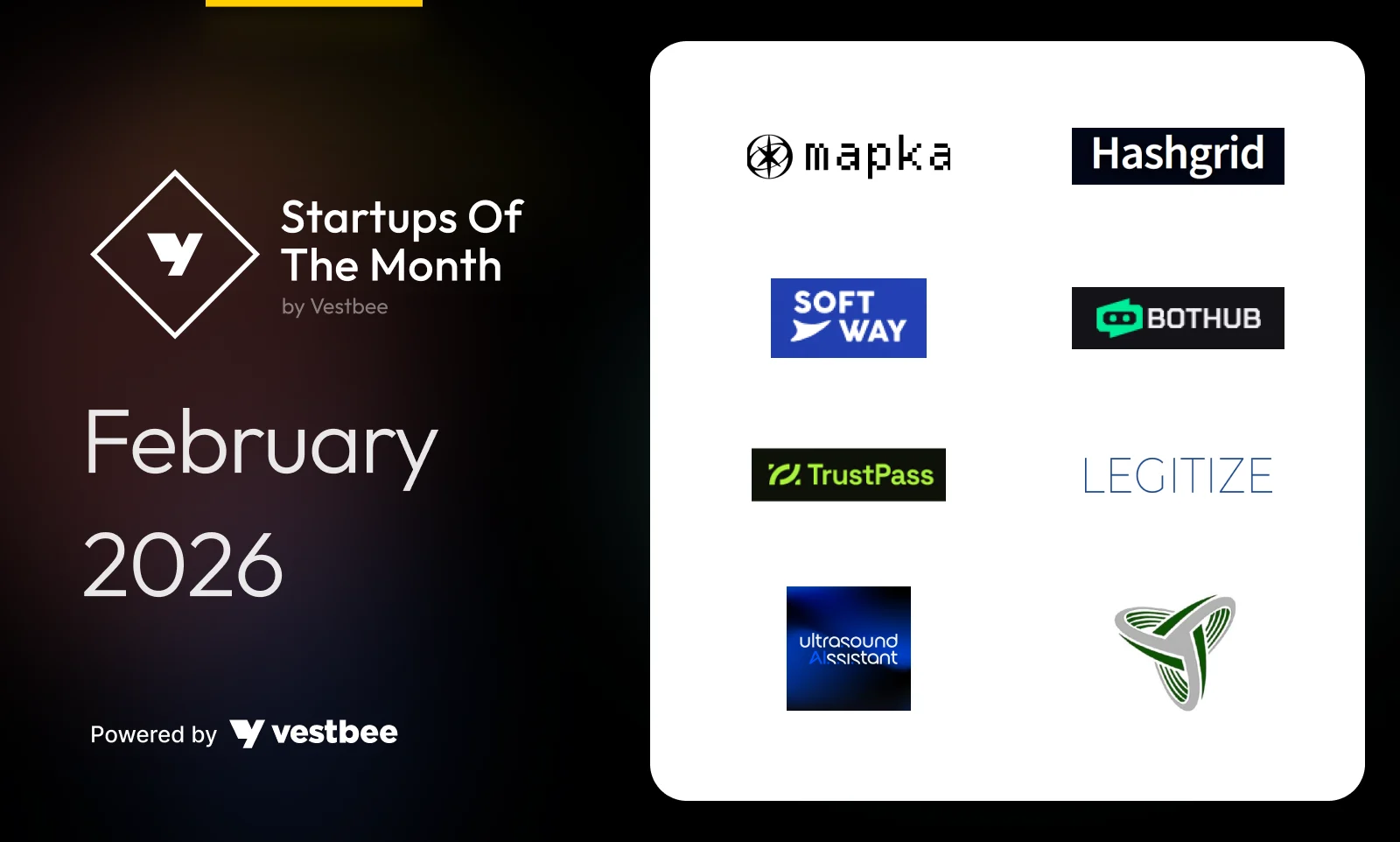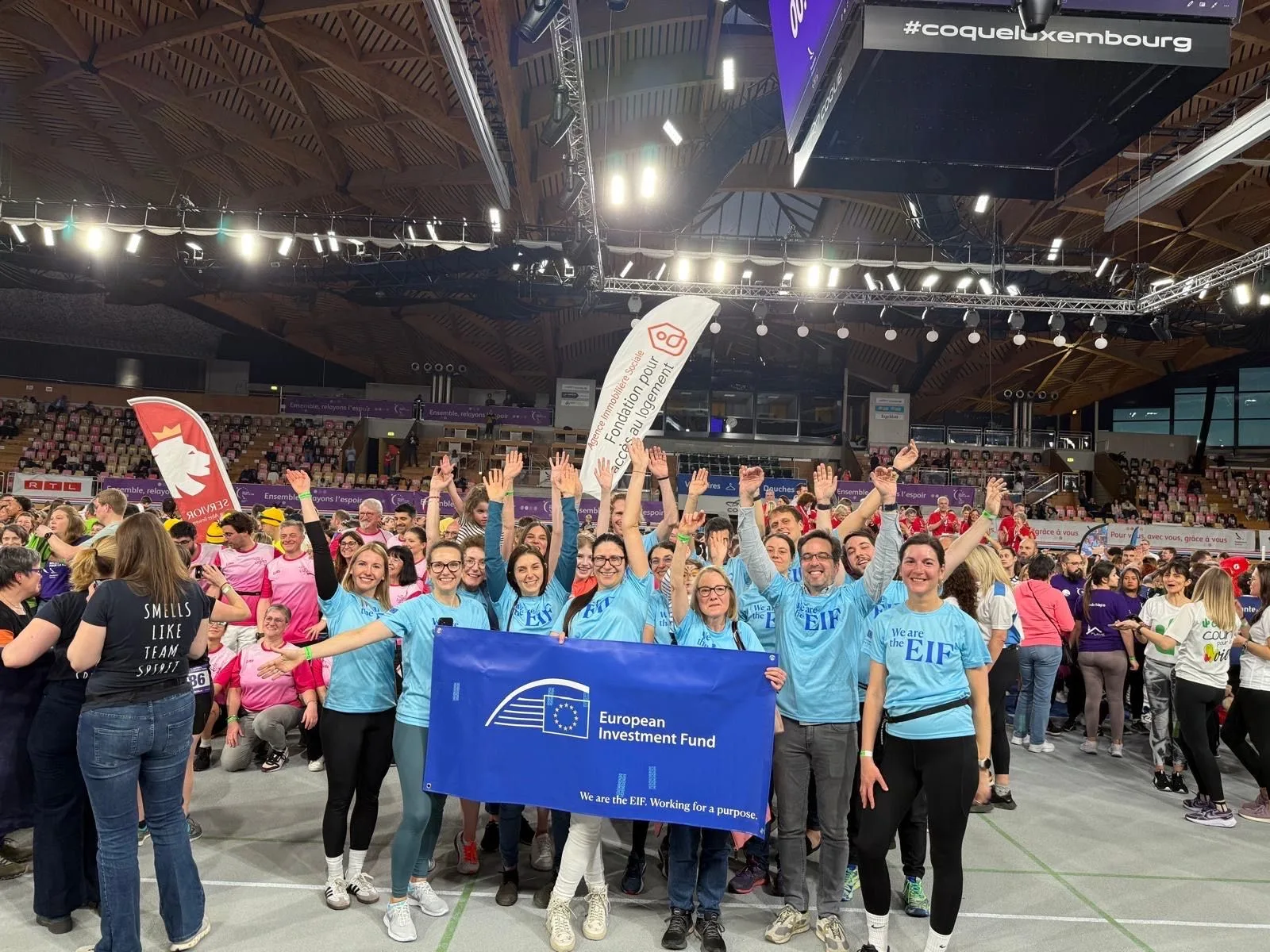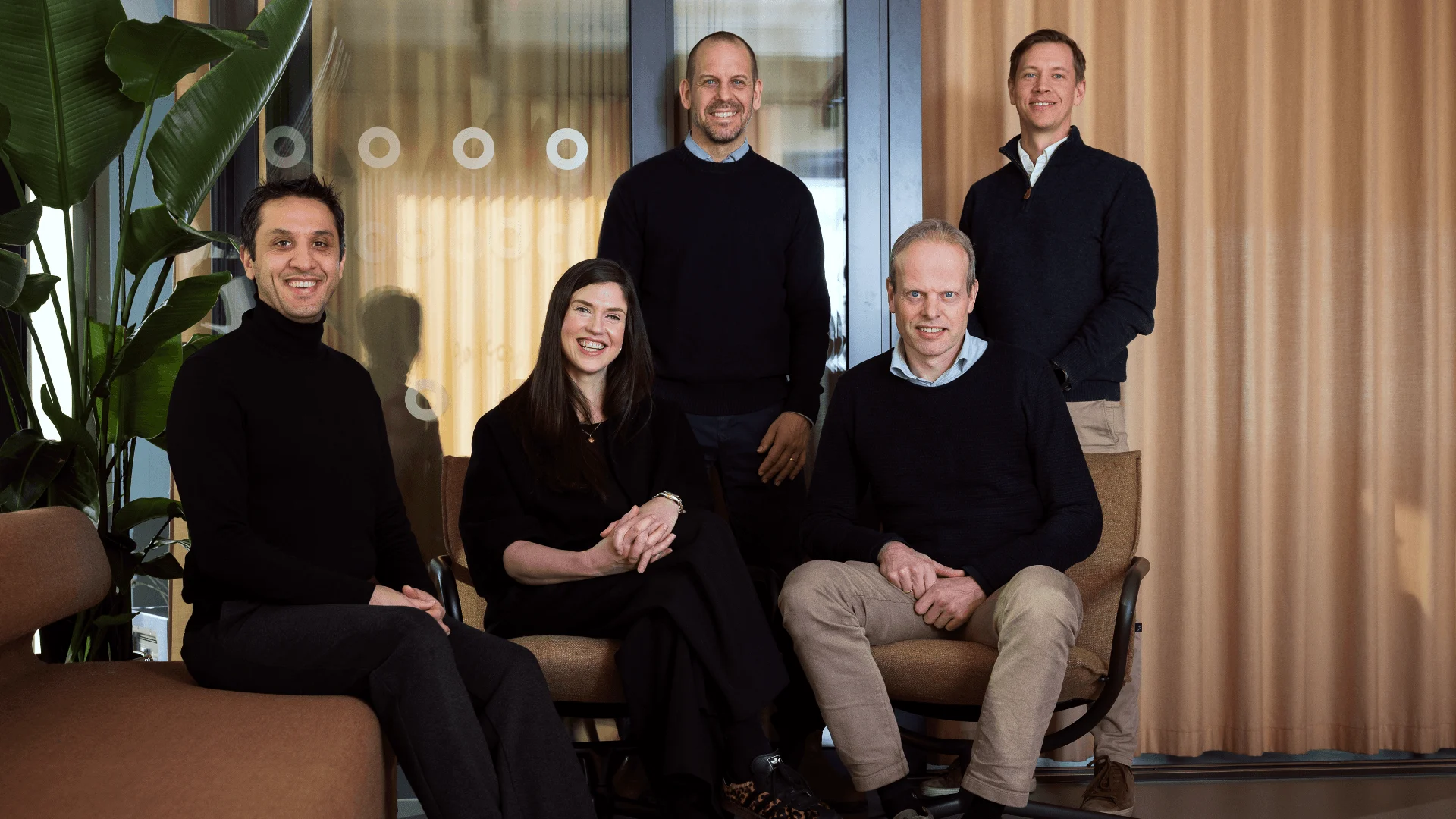Presto Ventures empowers talented startup founders from the wider CEE region. Their portfolio includes more than 50 companies across two funds, with €100M AUM. Presto is built by investors with a shared background in tech, science, math, and startups, and their funds are backed 100% by private money from successful entrepreneurs. As the name suggests, speed is key to their mission, and Presto is one of the most dynamic VCs in the region – in 2022 alone, they closed 24 new deals and invested over €12M.
Fund Strategy Overview
Geography: CEE+ (greater CEE region, including the Baltics, the Balkans, and the South Caucasus)
Investment ticket: €200K to €1.5M
Company stage: Pre-seed to seed (total round size typically €200K to €2M)
Product type: B2B SaaS (including enterprise software) and marketplace
Product stage: Preferably post-MVP, but all stages are considered
Revenues: Pre-revenue or early revenue (usually < €1M)
Q&A with Premysl Rubes, Founder & Managing Partner at Presto Ventures
What are the 5 main things you look for in a startup?
- Growing market: A truly promising startup operates in a significant and growing market where there are plenty of excitement and opportunities. When we ask the founders ‘why now?’, there should be a solid answer.
- Value proposition: A successful startup has to know exactly who its customers are, what they need, why they love the product, and how it makes their lives better.
- Scalability: A highly scalable and repeatable business model that can be expanded into new markets is key. Without this, the startup is missing growth potential, a critical ingredient.
- ‘Presto’ founders: The founders must be smart, fast, and have the skills, grit, and leadership abilities to hire and keep the best people and partners. More on this below.
- Capital efficiency: A good startup doesn’t waste money. They use capital wisely and efficiently and always have a solid plan for how they’ll use our investment to get to the next stage.
What disqualifies a startup as your potential investment target?
Generally, it would be one or more of the following reasons:
- Our eligibility criteria, such as geography, stage, sector, or ticket size, put the startup outside our fund’s thesis.
- Limited scalability or a small, stagnant market. For example, project-based or agency-based business models where each customer has different needs, and tailored implementation is needed.
- Weak foundations – the founders are unable to clearly and confidently explain what they do, who their customers are, and how their company stands out among the industry and their competitors.
What in your opinion differentiates the best founders from the rest?
- The ‘presto’ mindset: They can think and act quickly, without compromising on quality. These founders rapidly absorb new information to stay ahead of the game. They constantly educate themselves on the tech, the market, customer needs, trends, and competitors, as well as company-building principles, management, hiring, sales, and more.
- Thinking big and small: They can explain complex concepts in simple terms and tailor their language to the listener. They have a clear vision and a high-level overview of everything in the company – yet, at the same time, they’re able to dive deep into any topic, ask insightful questions, and thoroughly analyze details. It’s rare for these skills to come together in one person.
- Authentic leadership: They can persuade and inspire others, share their vision, and most importantly build trust through empathy and good communication. To build a successful company, hiring and retaining great people and surrounding yourself with the right partners is essential.
- True grit: They're driven, resilient, gritty, and ambitious, with a strong work ethic and a real hunger for success. Their motivation should come from within, as building a company requires hard work, sacrifice, and the ability to navigate both the marathons and sprints that come with it.
What should startups take into account before making a deal with a VC fund?
There are two key areas every startup needs to consider before making a deal with a VC fund:
- The VC mindset: VC brings a different mindset into the company. Founders should understand how the VC industry works, how investors think, what their business model is, how they make money, and why they invest. This should answer all the questions founders might have regarding whether to pursue VC money in the first place.
- The right match: Next, when it comes to choosing the right VC for their company, the founders need to verify a few things upfront:
- Does the VC have a good reputation in the community? Are they participating in the ecosystem and investing actively? Do they have successful companies in their portfolio and good references from the founders they’ve worked with?
- Has the VC mastered their craft? They should have experience with similar companies, ask good questions, understand quickly, and be in the know when it comes to the relevant numbers. The VC should be able to identify current company problems, and immediately give examples from their portfolio about how their companies are solving similar issues. A good VC also understands when to help, and when to leave the founders alone. They should have a solid and widespread network that can help in future fundraising rounds. Ideally, they should have experience with many companies, and the founders in their portfolio should have already gained some valuable experience or expertise they can share peer-to-peer.
- Relationships, trust, and personal fit are crucial. Listen to your instinct, and remember: “When in doubt, there is no doubt.” Don’t forget that you’ll be in close contact with your VC for five years or more.
What is your approach to startup valuation and preferable share in the company?
First, there must be a difference between our current valuation (based on relatively few indicators or small numbers in the market, because the company is at the starting line), and the valuation of the next round (which, on the other hand, will be calculated based on some performance numbers or multiples). This difference in valuation needs to correspond to the difference in risk that we’re taking now versus the future investor in a year or two.
So, if the round is already expensive now, then even if the startup does everything perfectly and achieves the planned results, yet the valuation remains almost the same or only perhaps 1.5x – well, then everyone is unhappy. Let alone if things don’t go as planned.
We look at the efficiency of capital utilization – and since we’ve already worked with a lot of startups, we know how much ‘new revenue’ can be generated by burning external capital in the early stages of the company. This helps us determine the size of the round and the goal of what to achieve with the money. From this number, we can also get the future and current valuation.
Presto's target ownership is 10-15% per company, but with some companies, we have less or more – depending on whether we lead or co-lead the round, or which financial instrument is used for the investment.
How do you support your portfolio companies?
The Partners at Presto Ventures have a shared background in tech, math, science, and finance, coupled with a true passion for product. We’re happy to take a hands-on approach when it comes to supporting our portfolio companies and don’t hesitate to lend a hand where it matters most: in sales, hiring, and next-round fundraising.
For us at Presto, portfolio support comes down to four pillars:
- Close, constant contact: Through our partners or board members, we provide recommendations and useful connections to our network. We also share internal materials and resources and provide ad-hoc support – which is even more frequent during challenging times.
- Strong community: We have a sizable and uniform composition portfolio. Many of our companies share sectors and business models, so they can leverage the network and share insights peer-to-peer.
- Sales & BizDev advisory: We’re hands-on when it comes to advising on sales methodology, CRM setup, hiring needs, commission structure, quotas, the best salespeople profiles for each stage – and even practical sales training if needed.
- Fundraising support: We provide the key documents along with consulting and business plans. And since we have a network of follow-on VCs, mainly in Western Europe and the US, we proactively inform them about our portfolio companies that are raising or plan to raise soon.
What are the best-performing companies in your portfolio?
I tend to think about three groups that are all worth mentioning:
- Later-stage (now Series B) companies growing steadily to €100M in revenues in the near future. They’re raising successfully, despite the unfavorable macroeconomic conditions – currently, Series B is the toughest round to raise. Among those would be Cloudtalk, IP Fabric, Oddin, or Woltair.
- Fresh-entry companies that already show great traction. Although we’ve only backed these startups recently, they’re already showing impressive performance and early signs of great success. These include, for instance, Adam, Inventoro, Sloneek, Omofox, Zypl.ai, or Factoree.
- Resilient companies. These startups are surviving and thriving against all odds and despite significant challenges, such as the war in Ukraine – Finmap, ChoiceQR, or Getpin.
What are your notable lessons learned from investments that didn’t work out as expected?
The hardest decisions should be made sooner rather than later. This limits the pain and maintains relationships. Embrace the conflict, rather than waiting and hoping for the best.
What are the hottest markets you currently look at as VC, and where do you see the biggest hype?
Hottest markets: We’re very excited about the greater Central and Eastern European region, which is seeing notable success compared to the rest of Europe.
The region’s outer borders are also hot right now, with countries like Macedonia and Bulgaria leading the way in innovation and investment. We’re keeping a close eye on Eastern Europe and Central Asia – countries like Ukraine, Georgia, Tajikistan, and Armenia are showing massive promise.
The world is changing, and it’s very interesting to follow the companies that are taking advantage of the current macroeconomic and geopolitical dynamics. Energy and supply-chain opportunities are looking promising.
Biggest hype: Let’s address the elephant in the room, GPT-4: Good thing we have Jan Romportl on board – our Deep Tech Partner, who knows how to separate the wheat from the chaff when it comes to AI-powered startups. Jan is an AI researcher, entrepreneur, consultant, and executive with more than 20 years of experience in the field. He was all-in on AI long before it was cool.
In your view, what are the key trends that will shape the European VC scene in the coming years?
The main trend I’ve been thinking about lately has to do with the changing dynamics between the VC and startup ecosystems of Western and Eastern Europe.
Over the decades of relative underinvestment throughout the CEE region, companies have learned to grow efficiently, focusing on business fundamentals, product quality, and hard skills – simply put, spending money wisely. It has always been ‘more substance, less marketing’ here in the East.
In addition, when CEE founders want to succeed, they need to escape their small home market and go global to build a big business, and that has been much more difficult for them than for their Western peers. CEE innovators have been gritty and resilient, have sacrificed more, and have worked harder – in other words, they haven’t been chasing ‘work-life balance’ as much as in the West :)
Meanwhile, in Western Europe, capital has been much cheaper – while invested VC money and valuations have been much higher. Then of course they skyrocketed to insane levels during 2020 and 2021, putting a lot of Western startups and VCs in trouble, especially those in later stages.
In the current environment, VCs worldwide are looking for sustainable growth, capital efficiency, and doing more with fewer resources. And these are exactly the areas where CEE startups have always been strong.
We’ve also seen a couple of great CEE successes over the last few years, and that has generated more sales and marketing expertise, which had historically been lacking.
I believe we’re entering a new era – and at its end, CEE will emerge as the most important tech hub in Europe.
Related Posts:
VC Of The Month - Flyer One Ventures (by Konrad Koncerewicz, Head of VC & Startups, Vestbee)
VC Of The Month - Lead Ventures (by Konrad Koncerewicz, Head of VC & Startups, Vestbee)
VC Of The Month - Sunfish Partners (by Konrad Koncerewicz, Head of VC & Startups, Vestbee)







